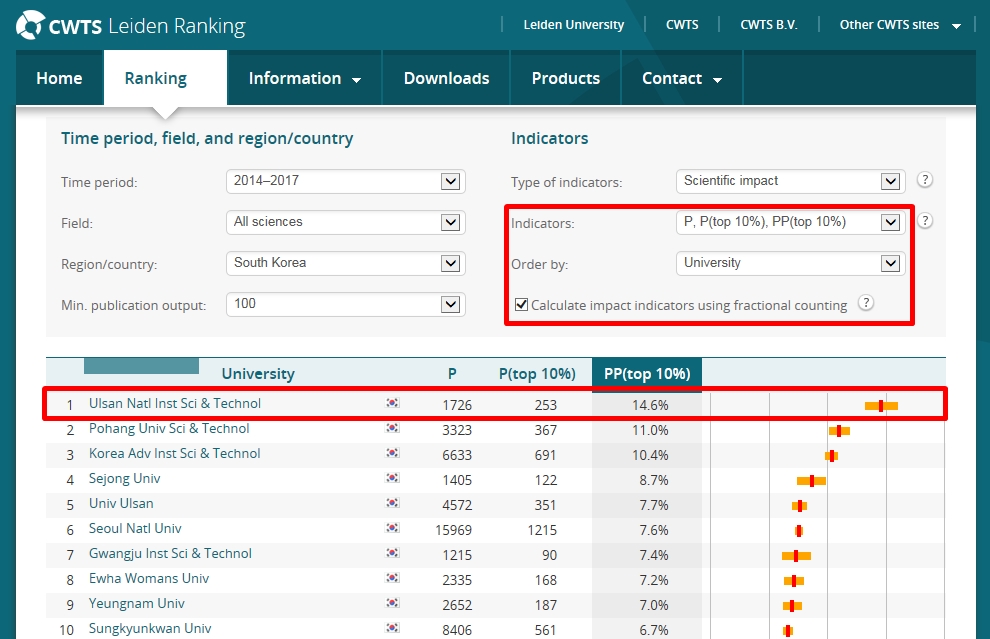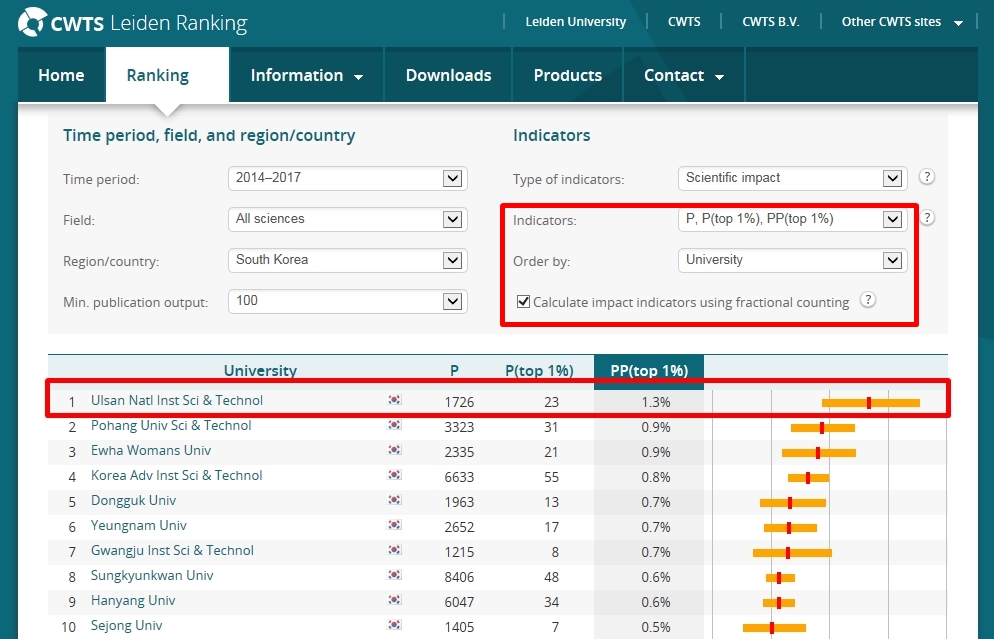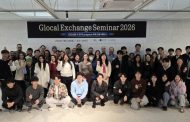UNIST has maintained its position as the top university in South Korea, according to the 2019 edition of the CWTS Leiden Ranking. This is the third consecutive year that UNIST has been crowned the top university in South Korea. The ranking has placed UNIST 68th in the world, making it the only Korean university to be included in the top 100.
The Leiden Ranking is published by the Centre for Science and Technology Studies (CWTS) at Leiden University in the Netherlands and is based entirely on data provided by the Web of Science now run by Clarivate Analytics. The dataset only includes publications in English-language journals that have an international scope and reference other established journals. The ranking evaluates universities on the impact of research conducted by their scientists, as well as their involvement in scientific collaboration. It focuses strictly on citation impact, using a methodology that accounts for differences between scientific fields in citation and collaboration practices.
This year’s CWTS Leiden Ranking judged the top 963 universities worldwide. These universities are the ones that have produced at least 1,000 Web of Science indexed publications in the period 2014–2017. The CWTS Leiden World Rankings situates its emphasis primarily on scientific merit measured through citation impact and research excellence. The main criterion is the ‘Percentage of a university’s total papers that are in the top 10% most cited’ between 2014 and 2017.

Source: CWTS Leiden Ranking 2019 (All figures calculated using fractional counting).
The impact indicators in the Leiden Ranking can be calculated using either a full counting or a fractional counting method. While full counting method gives a full weight of one to each publication of a university, the fractional counting method leads to a more proper field normalization of impact indicators and therefore to fairer comparisons between universities active in different fields. For this reason, fractional counting is the preferred counting method for the impact indicators in the Leiden Ranking.
During the period of assessment, UNIST produced a total of 3,440 papers, amounting to a fractional score of 1,726 — the bulk of which was in the physical science and engineering. UNIST published the most highly cited papers relative to its size in the following citation metrics on offer — the top 10% and 1%. About 14.6% of UNIST’s contribution was in the top 10% of highly cited papers, thereby retaining its position as Korea’s top university. This result was based on fractional counting and it was higher than those of POSTECH (11%), KAIST (10.4%), Seoul National Univesity (7.6%), and the University of Ulsan (7.7%).
The ranking also reported that about 1.3% of UNIST’s publications between 2014 and 2017, belong to the top 1% of highly cited papers. This again gives UNIST a reputation of being the No. 1 university in South Korea.

Source: CWTS Leiden Ranking 2019 (All figures calculated using fractional counting).
When they calculated impact indicators using fractional counting, UNIST has still remained strong at 68th among the best universities in the world. The five highest-ranked universities overall (based on top 10 % most cited papers) are MIT (24.6%), Princeton University (23.1%), Stanford University (22.6%), Harvard University (21.9), and Caltech (21.7%).
“We are pleased to be recognized once again as Korea’s leading university,” says Professor In Cheol Bang (School of Mechanical, Aerospace and Nuclear Engineering), Dean of Planning and Research. “This is largely due to the brilliance of our students and the dedication of our outstandng faculty and researchers.”
“We are delighted to know that UNIST remains among the top 100 universities globally,” says President Mooyoung Jung of UNIST. “I am greatful to to our outstanding faculty and researchers, and our talented students, for their excellent efforts, and for the constant and unwavering support of the government, the National Assembly, Ulsan City, and the Ulju County.”














